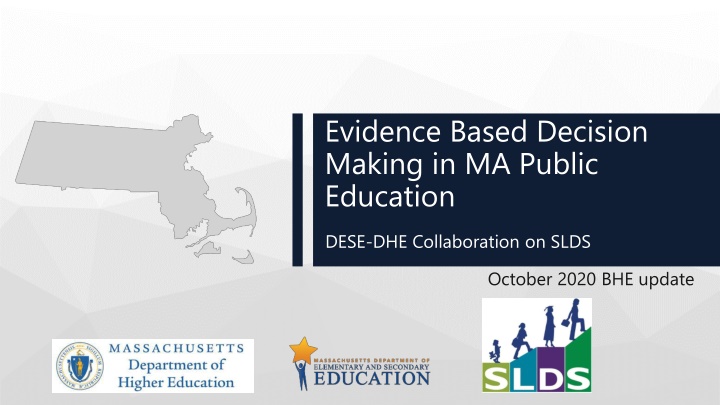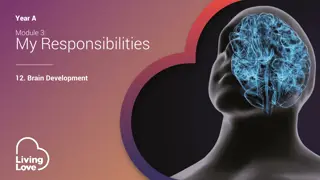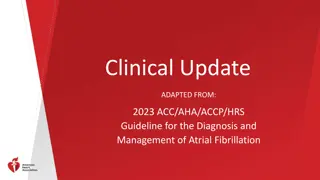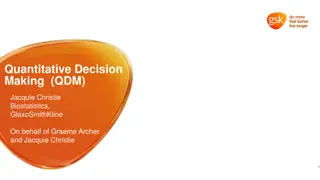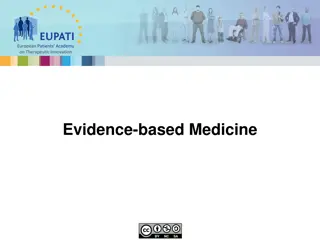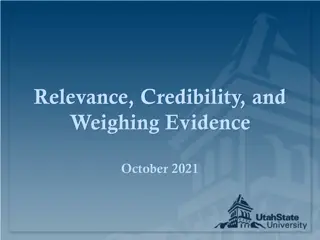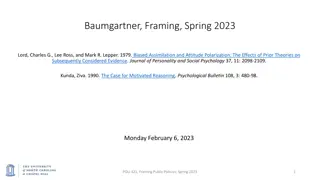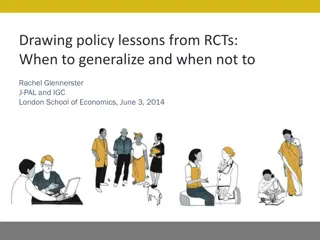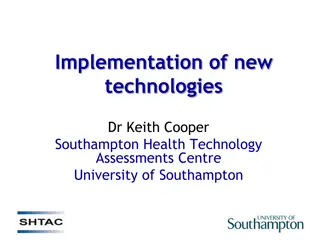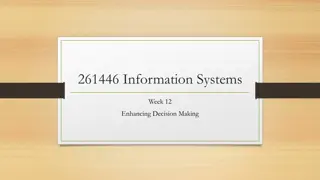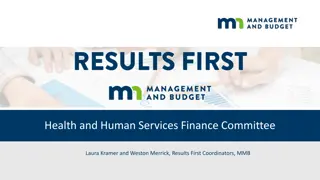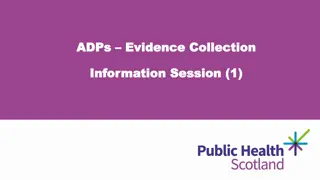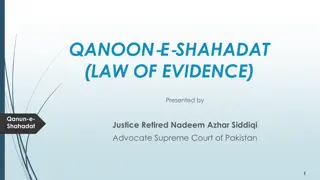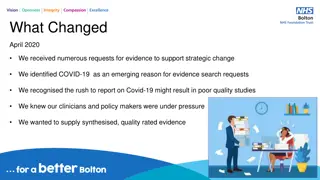Evidence-Based Decision Making in MA Public Education Update
Collaboration between DESE and DHE in MA public education to establish evidence-based policymaking, progress updates, and focus on SLDS data-driven decisions.
Download Presentation

Please find below an Image/Link to download the presentation.
The content on the website is provided AS IS for your information and personal use only. It may not be sold, licensed, or shared on other websites without obtaining consent from the author.If you encounter any issues during the download, it is possible that the publisher has removed the file from their server.
You are allowed to download the files provided on this website for personal or commercial use, subject to the condition that they are used lawfully. All files are the property of their respective owners.
The content on the website is provided AS IS for your information and personal use only. It may not be sold, licensed, or shared on other websites without obtaining consent from the author.
E N D
Presentation Transcript
Evidence Based Decision Making in MA Public Education DESE-DHE Collaboration on SLDS October 2020 BHE update
Evidence Based Policymaking Effort (BHE/DHE Progress to Date) 1. Jan 2020. Established an evidence-based policymaking committee on each education board to build a tighter connection between department staff and board members on data-driven policy making 2. Jointly approved a shared vision for evidence-based policy making across DHE and DESE, which includes commitments to: o Using available data to strategically drive policy decisions o Responsive data sharing with key stakeholders, including researchers o Producing and sharing actionable findings with end-users, including schools, institutions, and the communities that we serve 2
Recent Progress Orientation meeting for BHE working group members oJonathan Keller and team brief BHE Chair Chris Gabrieli and BHE Members Alex Cortez and Ann Christensen (September 14th). SLDS Review - Core DHE and DESE staff meeting oJonathan Keller, Matt Deninger (DESE), Chris Gabrieli, and Marty West (BESE) oExamined a SWOB (Strengths, Weaknesses, Opportunities and Barriers) analysis of our SLDS (September 22nd). 3
Work in Progress Review current and desired approaches to strengthening the capture, matching, and use of linked SLDS data 1. Examine data reports and dashboards for use by and relevance to policy makers and practitioners. 2. Identify SLDS-related operational issues and create an approach to address issues institutionally. 3. Generate actionable items for joint DHE/DESE board meeting in Dec/Jan. 4
Update on Evidence-Based Policymaking Keys to Success To be successful, evidence-based policymaking must be attentive to: Ensuring Data Quality Merging & Enriching Data Facilitating Research Partnerships Creating & Using Analytic Tools 5
Update on Evidence-Based Policymaking Addressing the Impact of COVID-19 is an Equity Issue Source: DHE tabulations of US Census Bureau, Household Pulse Survey Week 14 (September 2 14, 2020), Table 6: Impact of Coronavirus Pandemic on Post-Secondary Educational Plans, by Select Characteristics. Population Surveyed: Total population 18 years and older in households where at least one adult was planning on taking classes this fall from a post high school institution. More info on sampling > 6
MA Postsecondary Degree Attainment Pipeline Attain HS Degree Attain Degree Attend Persist FAFSA Enroll Accept Apply What are the pathways that Black, Latinx, Indigenous, low-income, and/or first gen students take in traversing from MA public K12 schools to college? How can we rapidly identify the specific impacts of the pandemic on these populations so that we can design countermeasures to better serve the Class of 2021 and perhaps reach back to some members of the Class of 2020 as well? 7
SLDS Preliminary Findings: Pipeline Loss 7,955 economically disadvantaged (low-income) Black, Latino, or Indigenous high school graduates in the state in 2019. Fifty high schools with the largest number of low-income Black, Latino, or Indigenous graduates each graduated at least 48 students. oThese schools accounted for 62% (4,922) of all low-income graduates of color. Substantial concentration of students in several institutions of higher education. 8
SLDS Preliminary Findings: Pipeline Loss For example, Brockton High School graduated 307 low- income students of color in 2019. o52% enrolled in college in the fall, mostly (83%) in MA public institutions. oOf the students who enrolled in MA public institutions, 79% enrolled in 3 schools: 81: Massasoit Community College (73 students), 22: Bridgewater State University (19 students), 23: UMass Amherst (10 students). 9
Stability in Student Enrollment in the Top-4 Enrollment Colleges 10
Next Steps Initial Report Long-term pipeline and class of 2020/2021 oCollaboration between DESE and DHE oDescribe multi-year patterns in MA college pipeline oRapid response to target graduating class of 2021 Action oWe intend to hold a special meeting of the joint Boards to discuss progress and opportunities, both for SLDS overall and for the Class of 2021 challenge, in approximately January 2021 oCreate systems of support to strengthen this pipeline 13
